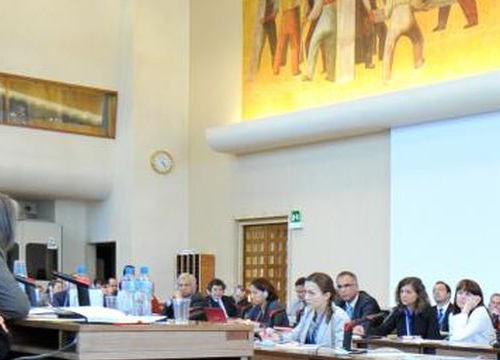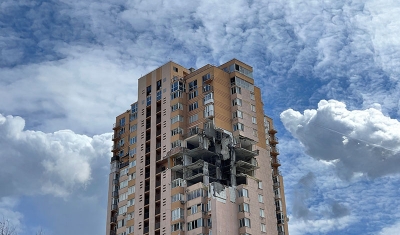Informal Consultations on Improvised Explosive Devices: Presentation of our Platform
Improvised Explosive Devices


UN Photo/Violaine Martin
Our Executive Manager Kamelia Kemileva presented our Platform on improvised explosive devices (IEDs) at the informal consultations on IEDs organized by France and Colombia on 31 August at the Palais de Nations.
In her statement she notably stressed the need to address the legal aspects of IEDs. ‘International humanitarian law is an insufficient body of law for this task since considerable part of IEDs’ related attacks occur outside conflicts’ she underlined. ‘Other bodies of law have also to be considered, such as international criminal law: the impunity enjoyed by many perpetrators of IEDs-related attacks is a useful propaganda tool for their continued usage’ she added.
Kamelia Kemileva also stressed the need for a coordinated approach on this issue and the need for a system wide focal point with a specific mandate. ‘The concern raised that the appointment a UN focal point or Special envoy on IEDs would be too costly is frankly absurd’ she stressed. ‘The United Nations frequently creates pro bono positions, where only minor assistance costs are budgeted’ she added.
About our Platform on IEDs
In 2015, we established a platform to address the thread, use and consequences of the worldwide employment of improvised explosive devices (IEDs), and to advance the international agenda for countering them.
This platform is designed to bring together, via annual meetings, policymakers and practitioners from governments, international organizations, NGOs, the military, law enforcement and academia.
The objective is to lead informal discussions for future international action to address IEDs and their impact and to act as a bridge builder between Geneva and New-York (Convention on Certain Conventional Weapons and UN General Assembly) and between all the UN agencies active in countering IEDs.
Partners include the United Nations Institute for Disarmament Research (UNIDIR) and Action on Armed Violence (AOAV). An expert form Chatham House has also been participating, since the inception of the platform, in conceptualizing its substance.









